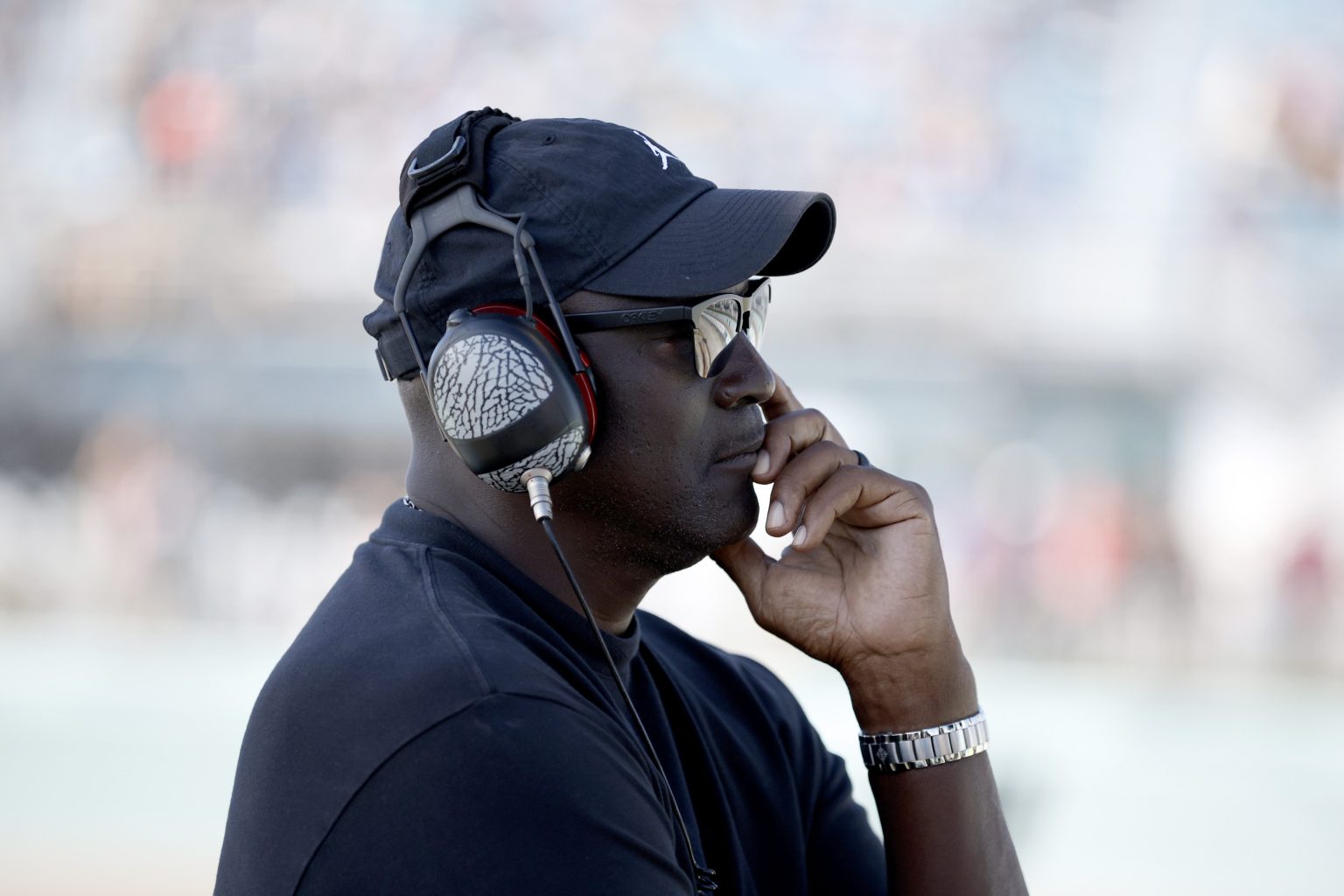The NASCAR world finds itself embroiled in a legal battle between two prominent race teams, 23XI Racing and Front Row Motorsports, and the sport’s governing body, NASCAR. At the heart of the dispute lies the ownership and sale of valuable racing charters, specifically three held by Stewart-Haas Racing (SHR) as it downsizes its operations. 23XI, co-owned by Denny Hamlin and Michael Jordan, and Front Row Motorsports had agreements in place to purchase these charters, crucial for securing their future participation and competitiveness. However, NASCAR’s decision to withhold approval of the sales pending the withdrawal of an antitrust lawsuit filed by the two teams has ignited a contentious standoff. This move has been interpreted as a retaliatory tactic, escalating the conflict and casting uncertainty over the 2025 season for both 23XI and Front Row.
The crux of the legal argument revolves around the charter system, implemented by NASCAR in 2016 to provide stability and financial security to participating teams. Charters guarantee entry into each points-paying Cup Series race and a share of the prize purse, essentially acting as a franchise system within the sport. They also limit the field size and the number of cars a single team can own, creating scarcity and driving up their value. 23XI and Front Row seek to expand their operations by acquiring SHR’s charters, recognizing their significance in ensuring long-term viability and competitive parity. However, NASCAR’s intervention, conditioning the sale on the retraction of the lawsuit, has effectively stalled the process, potentially forcing both teams to compete with fewer resources and potentially jeopardizing their long-term stability.
The financial implications of the dispute are significant. Recent charter sales, such as Spire Motorsports’ acquisition for over $40 million, underscore the escalating value of these assets. The ongoing legal battle, however, casts a shadow over their worth, creating uncertainty in the market. For SHR owners Tony Stewart and Gene Haas, the protracted dispute could lead to difficult decisions if the value of their charters diminishes. Moreover, the precedent set by this case could have far-reaching consequences for NASCAR’s financial structure, impacting future revenue sharing agreements and team ownership models. The potential ripple effects extend beyond the immediate parties involved, shaping the overall financial landscape of the sport.
The legal wrangling also exposes deeper concerns about competitive balance and fairness within NASCAR. The charter system, while designed to provide stability, has inadvertently created a tiered system where chartered teams enjoy significant advantages over non-chartered or “open” teams. These advantages extend beyond guaranteed entry and purse money, including priority access to pit stalls and other logistical benefits crucial for race day performance. If 23XI and Front Row are forced to compete without the acquired charters, they face a significant disadvantage, potentially hindering their ability to compete effectively against established chartered teams. This could further solidify the existing hierarchy and stifle competition within the sport.
Despite the escalating tensions and potential repercussions, there is a glimmer of hope for a resolution before the start of the 2025 season. Industry insiders, such as journalist Jordan Bianchi, have expressed optimism, suggesting that an agreement might be reached before the Daytona 500. Such a resolution would allow both 23XI and Front Row to secure their desired charters, ensuring their long-term stability and competitiveness. It would also avert a potentially damaging and protracted legal battle that could disrupt the start of the season and create further instability within the sport.
A pre-Daytona settlement would likely involve negotiations and compromises on both sides. NASCAR might reconsider its stance on the charter sales, recognizing the importance of allowing teams to expand and strengthen the field. 23XI and Front Row, in turn, might agree to amend or drop their antitrust lawsuit, acknowledging the legitimacy of the charter system while seeking assurances about its fair and equitable application. The outcome of this dispute holds significant ramifications for the future of NASCAR, influencing not only the competitive landscape but also the financial model and ownership structure of the sport. A successful resolution will require a balanced approach that addresses the concerns of all parties involved, ensuring the long-term health and sustainability of NASCAR racing.

